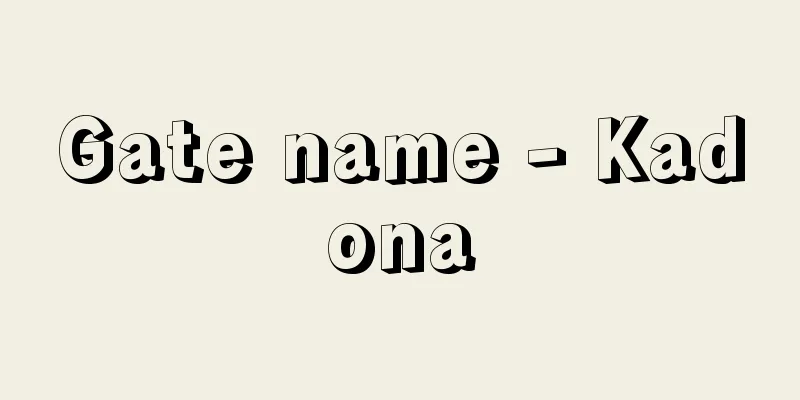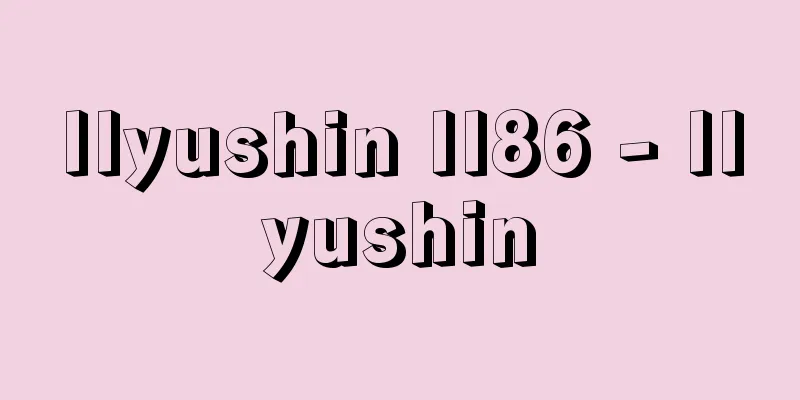Gate name - Kadona

|
〘Noun〙 In the Edo period, common names were created to distinguish the households of farmers who were not allowed to have surnames. They were created based on the location of the household, occupation, blood ties, etc., and differ from the shop names given independently by merchants. ※Akanebemuraokite (Mino) - Kansei 4th year (1792) "If there is a person in the group who is using the name of the head and is in the same position, we will request that he be removed." Source: The Selected Edition of the Japanese Language Dictionary About the Selected Edition of the Japanese Language Dictionary Information |
|
〘名〙 江戸時代、名字を許されなかった百姓の家を相互に区別するために生じた通称。その家のあり場所や、職業、血縁関係などによって生じた点が、商家の自主的につけた屋号と異なる。※茜部村掟(美濃)‐寛政四年(1792)「組中に頭分と紛敷門名相用候者有レ之ば相除可レ申事」
出典 精選版 日本国語大辞典精選版 日本国語大辞典について 情報 |
Recommend
Elkanbei tribe - Elkanbei tribe
...Negidar is a self-proclaimed name meaning &quo...
Eckenstein, O.
...The Karakoram Expedition by W. Moorcroft and o...
Asian Storm
A Soviet film made in 1928. Directed by Vsevolod P...
What is the Third Estate?
A pamphlet written by French politician Sieyès in...
Enkou - Enkou
〘Noun〙① A circular light. It is used to refer to t...
Yakkomono - Yakkomono
A type of Kabuki kyogen. The main characters are s...
I love Okinawa - I love Okinawa
...Beef or chicken is usually combined with green...
The boar of Mount Erymanthus
...After a whole year of hunting, he captured the...
Bishop, RF (English spelling) BishopRF
...The enterococcus hypothesis states that the di...
Bern - Bern (English spelling)
Bern is the capital of the Swiss Confederation an...
Shoveler - Shoveler
A bird of the Anatidae family (illustration). It b...
Ahn Kyung-soo
1853-1900 A politician from the Joseon Dynasty. B...
Effective value
A value that expresses the strength of a changing...
Tokiwazu-bushi
The name of a school of joruri. Its founder was T...
Enseiji Temple
...In addition to rice cultivation, the area also...









